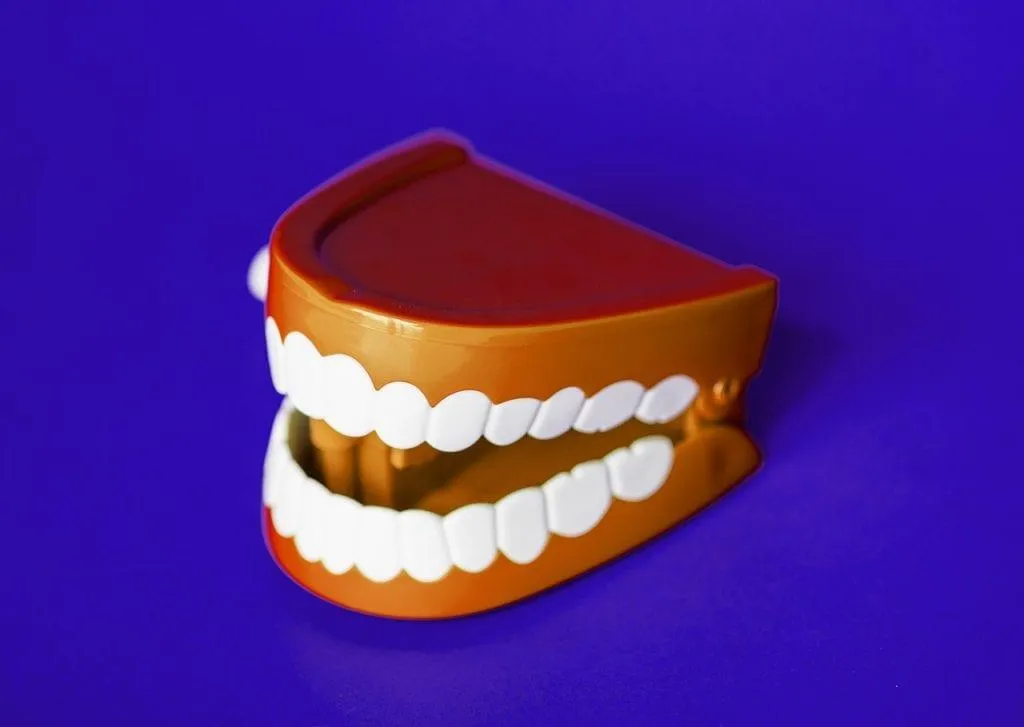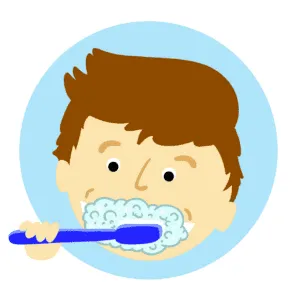Common Problems

Tooth Decay
Cavities, or tooth decay, is a preventable disease. While caries might not endanger your life, they may negatively impact your quality of life. When your teeth and gums are consistently exposed to large amounts of starches and sugars, acids may form that begin to eat away at tooth enamel.
Carbohydrate-rich foods such as candy, cookies, soft drinks, and even fruit juices leave deposits on your teeth. Those deposits bond with the bacteria that normally survive in your mouth and form plaque. The combination of deposits and plaque forms acids that can damage the mineral structure of teeth, with tooth decay resulting.
Tooth decay is very common in children, but it can be prevented by keeping a good dental hygiene routine. Children who brush and floss their teeth regularly can avoid getting cavities.
Sensitive Teeth
Your teeth expand and contract in reaction to changes in temperature. Hot and cold food and beverages can cause pain or irritation to people with sensitive teeth. Over time, tooth enamel can be worn down, gums may recede or teeth may develop microscopic cracks, exposing the interior of the tooth and irritating nerve endings. Just breathing cold air can be painful for those with extremely sensitive teeth.
Tooth sensitivity does not always mean something is wrong. It is very common for children to have sensitivity from tooth root exposure when teeth are erupting and when teeth are being moved by braces. These kinds of sensitivity are temporary and are no cause for alarm.
However, that doesn’t mean you should disregard it. Sensitivity can be a sign that something is wrong, like having a cavity. It’s a good idea to check with a dentist if you think your child’s tooth sensitivity could be a symptom of a larger issue.


Gum Disease
Gum, or periodontal, disease can cause inflammation, tooth loss, and bone damage. Gum disease begins with a sticky film of bacteria called plaque. Gums in the early stage of disease, or gingivitis, can bleed easily and become red and swollen. As the disease progresses to periodontitis, teeth may fall out or need to be removed by a dentist. Gum disease is highly preventable and can usually be avoided by daily brushing and flossing. One indicator of gum disease is consistent bad breath or a bad taste in the mouth.
Gum disease can be caused by:
– Food stuck in gums
– Poor diet
– Poor dental hygiene
– Diabetes
– Smoking or chewing tobacco
– Autoimmune diseases
– Hormonal changes
– Mouth breathing
– Repeated teeth grinding or clenching
– Certain medicines
Gum disease in children can be prevented by brushing and flossing daily, using the right size toothbrush for your child’s size and age, seeing the dentist regularly, and eating healthy foods. Limiting the consumption of foods high in sugar and starch will also help.
Treatment of gum disease needs to start early. Otherwise, the disease may start dissolving the bone structure around teeth. Gum disease can be treated by regular cleaning by dentists, which can help fight back gingivitis, as well as regular brushing and flossing at home. It can also be treated with deep cleaning of the plaque under gums so teeth can reattach to them. Antibiotic medications, as well as surgery, can also treat gum disease.
Canker Sores
Canker sores (aphthous ulcers) are small sores inside the mouth that often recur. Generally lasting one or two weeks, the duration of canker sores can be reduced by the use of antimicrobial mouthwashes or topical agents. The canker sore has a white or gray base surrounded by a red border.
The exact cause of cankers sores is still unknown, but factors such as weakened immune system, food allergies, stress, viruses and bacteria, mouth injuries, poor nutrition, certain medicines, and irritation from braces are thought to play a role. Although canker sores can be diagnosed by a physical examination, extra steps may be taken to rule out other causes. These could include blood tests, cultures of the sores, and a biopsy of the sore.
Treatment of canker sores can vary depending on age, symptoms, and health, but some options can include drinking more fluids, taking medicine for any fever or pain, proper oral hygiene, skin medicine for pain, and mouth rinses. Foods that are spicy, salty, or acidic may make the sores more irritated, so it’s best to avoid them.
Canker sores only last for a couple of weeks, but they also have the potential to come back. If you or your child have canker sores that are very painful, last more than two weeks, are very large, or keep coming back, contact your healthcare provider.


Orthodontic Problems
A bite that does not meet properly (a malocclusion) can be inherited, or some types may be acquired. Some causes of malocclusion include missing or extra teeth, crowded teeth, or misaligned jaws. Accidents or developmental issues, such as finger or thumb sucking over an extended period, may cause malocclusions.
Children who suck their thumbs after age 5 and children with barely any space between their baby teeth are more at risk for developing malocclusions.
In addition to having crooked or crowded teeth, children with malocclusions could also have an overbite, underbite, open bite, or crossbite. Malocclusions can cause problems with eating or speaking, teeth grinding, early or late loss of baby teeth, mouth breathing, tooth decay, gum disease, and jaw joint problems.
Malocclusions can be identified and diagnosed by x-ray or by taking an impression of the teeth. If your child has a malocclusion, it can be treated, but treatment will depend on your child’s age, health, and individual symptoms.

19 INVERNESS CENTER PARKWAY, STE 250, BIRMINGHAM, AL 35242
TEL: 205.969.7454
E-MAIL: [email protected]
2018 © ALL RIGHTS RESERVED | PRIVACY POLICY | TERMS AND CONDITIONS
Site by Trustway Marketing Powered by Kyrios Systems